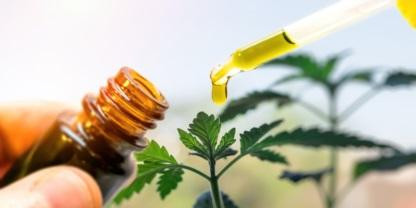Hemp vs Marijuana: Understanding the Differences
Hemp vs marijuana are both plants in the cannabis family, but they differ in several important ways.
-
THC content: Hemp plants contain very low levels of THC (less than 0.3%), which is the psychoactive compound that gives marijuana its "high". Marijuana plants, on the other hand, contain much higher levels of THC.
-
CBD content: Both hemp and marijuana plants contain CBD (cannabidiol), which is a non-psychoactive compound with many potential health benefits. However, hemp plants tend to have higher levels of CBD than marijuana plants.
-
Appearance and growth: Hemp plants are typically taller and skinnier than marijuana plants, with narrower leaves and a more fibrous stalk. Hemp plants are also grown more densely, while marijuana plants are spaced farther apart to encourage branching and flowering.
-
Legal status: Hemp has been legalized at the federal level in the United States, while marijuana remains illegal under federal law. This means that hemp can be grown and sold in all 50 states, while marijuana is only legal for medicinal or recreational use in certain states.
In summary, while hemp and marijuana are both cannabis plants, they differ in their levels of THC and CBD, appearance, growth habits, and legal status. Hemp is typically grown for its fiber and CBD content, while marijuana is grown for its psychoactive properties.
If you're interested in becoming a become a cbd seller, there are several steps you can take to get started:
Research CBD oil companies: Look for reputable companies that offer high-quality products and have a strong reputation in the industry. Check out their websites, read customer reviews, and compare pricing and product offerings.
Determine your target market: Think about who you want to sell CBD oil products to. Are you targeting health and wellness stores, pharmacies, or natural food stores? Or are you interested in selling directly to consumers through an online store or in-person events?
Decide on your business model: Will you be buying and reselling products from a CBD oil company, or will you be dropshipping products directly to customers? You'll need to figure out how you'll handle inventory, shipping, and payment processing.
Check local laws and regulations: Make sure you understand the legal requirements for selling CBD oil in your area. Laws can vary widely depending on your location, so be sure to do your research before getting started.
Build relationships with customers and suppliers: Whether you're selling directly to consumers or to other businesses, building strong relationships is key to success in the CBD oil industry. Make sure you're providing top-notch customer service and working closely with your suppliers to ensure you have a steady supply of high-quality products.
By following these steps, you can start exploring the many opportunities available to CBD oil distributors.
For More Info:-


Comments
Post a Comment